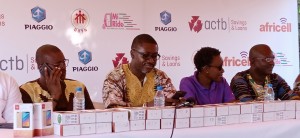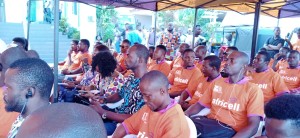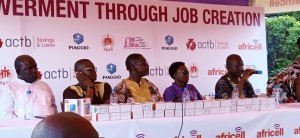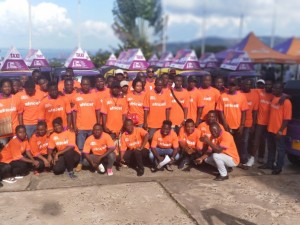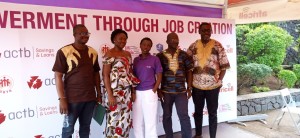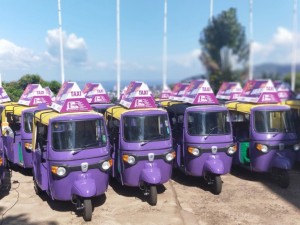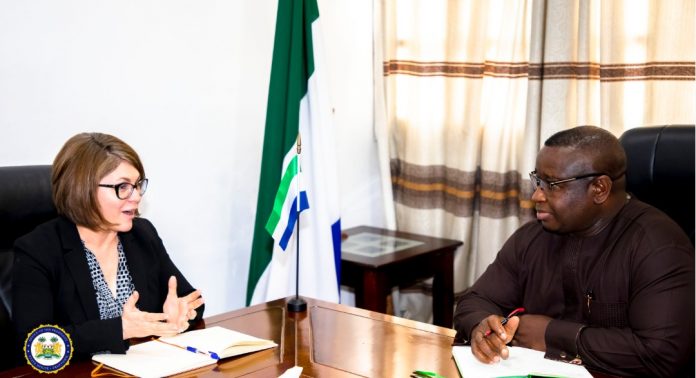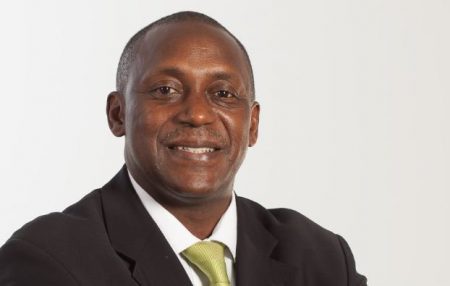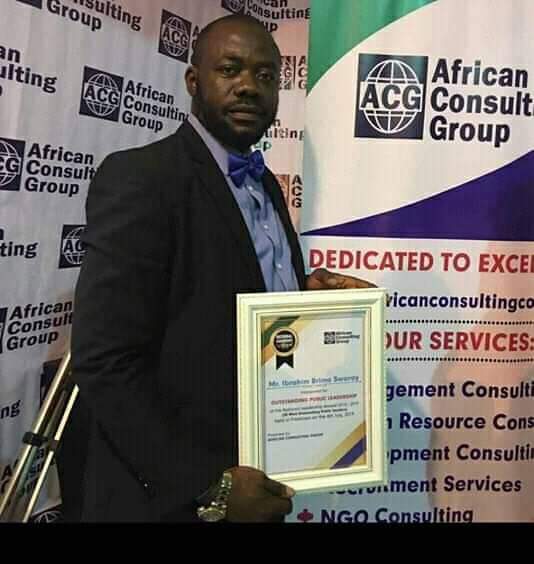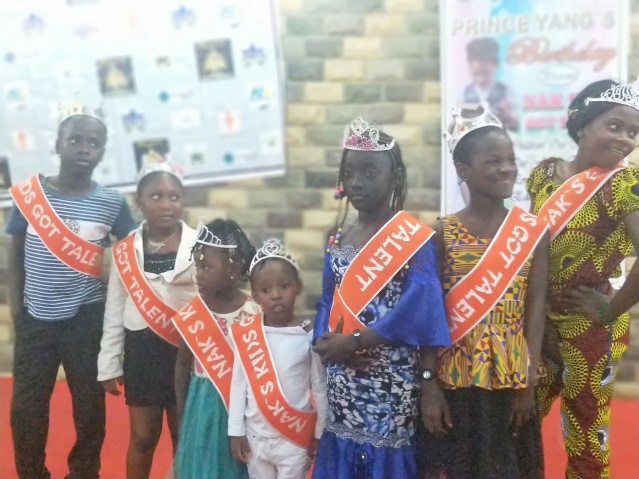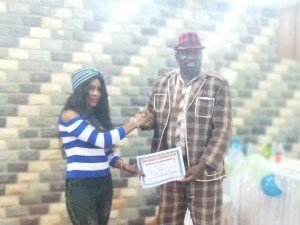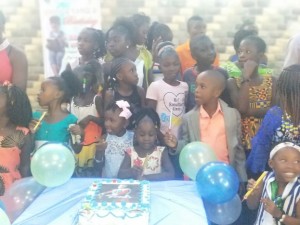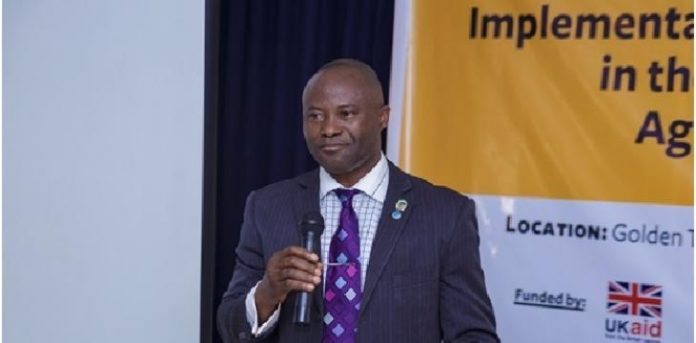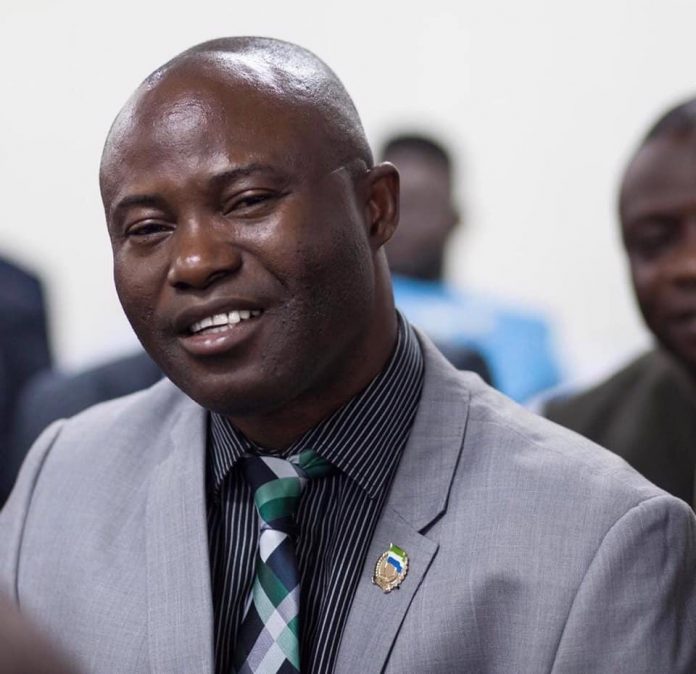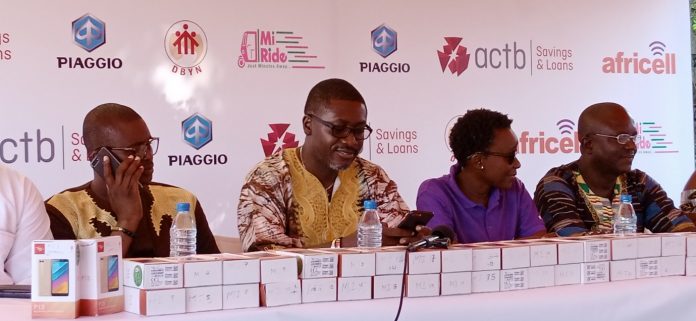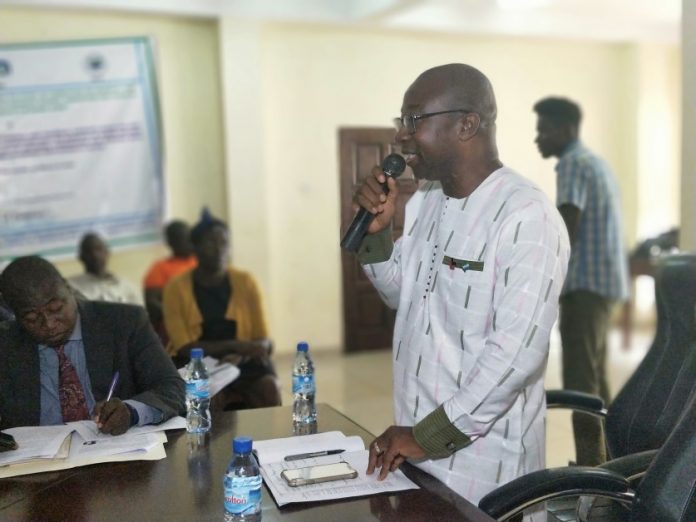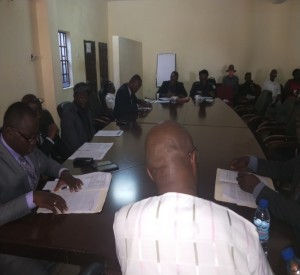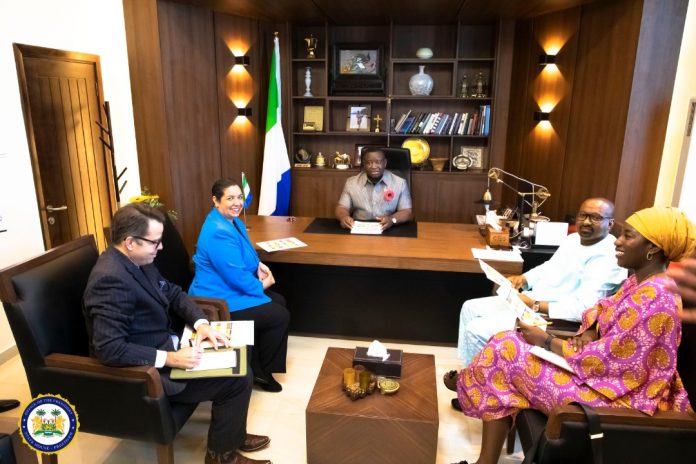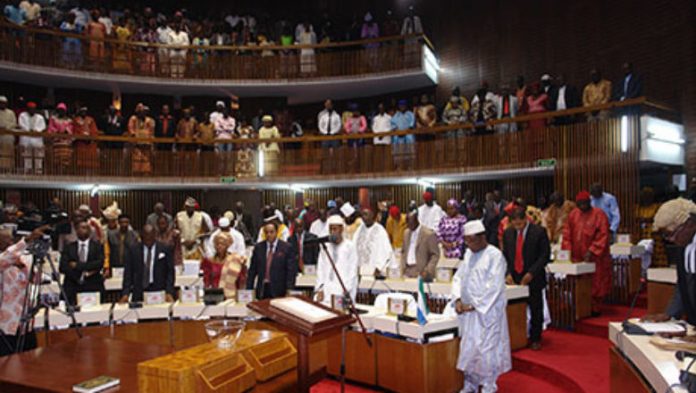By Amin Kef Sesay
A new product called “Mi Ride Keke” has been officially launched by Africell Mobile Company on Friday 1st November, 2019 at their Wilberforce headquarters in Freetown.
The launch of this product is in the bid to support women empowerment through job creation in Sierra Leone which the leading GSM mobile operator in terms of customer connectivity has entered into partnership with A Call To Business Mi Ride (SL), Don Bosco Fambul and Sierra Leone Tricycle Association.
Addressing members of the media, Afri-Radio Station Manager John Konteh who spoke on behalf of the Chief Corporate Affairs Officer, Joe Abass Bangura, said that Africell was happy as a Management to Launch “Mi Ride Keke”, a transportation service being that is being rolled out in partnership with Mi Ride (SL), ACTB Savings and Loans, Don Bosco Fambul and Sierra Leone Tricycle Association.
The reason why the Keke was being launched is that it is the most common means of transportation in Sierra Leone and it is a unique piece of machinery that is being used by companies and individuals to transport goods and passengers across the country.
He disclosed that the Keke conveys commuters to distances and locations in comfort and style and some are even fitted with additional sound system to make passengers comfortable through the journey.
He said that they have realized there are fewer women than men riding Kekes across Sierra Leone. Most of these Keke riders are men, and noted that the service will create an avenue for women to access livelihood support to women with 100 Kekes to 100 women to ply the streets of Freetown as a means of job creation and revenue generation.
John Konteh added that these 100 Kekes will all have designated Africell number assigned to each with a short code 5353 and once passengers access the assigned Keke with the unique Africell branding they will pay the normal point to point fare and will also get Le 1 ,000 talk time from Africell at free cost.
Upon disembarkation, the rider will send the Africell number of the passenger to the Africell short code 5353 and the passenger will get a message confirming the transfer of Le I ,000-taIk time to their number, adding that passengers will be at liberty to join as many “Mi Ride Keke” per day and enjoy the Le 1,000 talk time.
“However, passengers will not be eligible e to receive more than Le 1,000-talk time per day from the same rider. A rider can only send an Africell number to the short code 5353 once. A commuter will have access to the allocated talk time but cannot have to look for another Mi Ride Keke to be able to access it”, he maintained.
John Konteh applauded Africell’s partners for the bold initiative to give access to livelihood and dignity to women, noting that the company will continue to be at the cutting edge of innovative technology-based solutions to deliver products and services in Sierra Leone.
Chief Executive Office Mi Ride-SL Ltd David Ngaujah disclosed that having been in the transportation and automotive industry for over a decade now with the urge to contribute towards nation-building; his aim was to empower vulnerable women and girls through entrepreneurship.
“Achieving this great dream, cannot be done alone but to stand shoulder to shoulder with other cooperate entities who have similar dreams and vision, no doubt I have to hook up with Africell the best and most flexible telecommunication company in S/L, ACTB, one of the most outstanding banking institution in the country who came to my aid by financing this project and Don Bosco Fambul” he noted.
He added that the launching of the 100 commercial tricycles commonly in Freetown will help to ease the transportation crisis in the municipality greatly.
The model is designed in such a way that the riders will be managed by Mi Ride SL Ltd for a period of 18 months and will owned the kekehs after the end of period which is commonly called “wok en pay”
In addition, and consequently, the riders will automatically become agents of Africell whereby they will be able to sell Africell money, top up, Sim Cards etc and Africell will provide them instant commission for every sales/transaction made to the kekeh riders. Of particular importance was that all passengers onboard the Mi Ride Kekes will instantly regain 50% on net on whatever amount they pay to the kekeh riders who will also not incur repairs and maintenance rather Mi Ride Keke.
Warm appreciation was given to Africell-SL, ACTB Savings and Loans, Don Bosco Fambul, Cerra automotive and Sierra Leone Tricycle Association for their tremendous support in making the project a success.
Assistance Country Director Don Bosco Fambul Samuel Thomas Bojoh disclosed that Don Bosco Fambul has been long standing partnership with Africell for over nine years with the establishment of the Child Line 116 in 2010, which is now metamorphose to 323. He added that launching the Mi Ride Keke was another partnership with Africell in concert with Mi Ride SL Ltd and this has endorsed their long standing deepened relations.
He noted that there was a deferred Memorandum of Understanding (MOU) to be signed on media Advocacy of Sexual Abuse Cases between Africell and Don Bosco Fambul and that Don Bosco carefully selected recipients of’ the tripartite project based on integrity, prudency and moral grounds. “It is our hope that these fortunate group of keke riders would be of difference according”, said the Don Bosco chief.
The riders were admonished to see themselves as fortunate choices of the project; therefore they should be different among others in discharging their duties.
They were also advised that they cannot just ply the streets of Freetown for money but to service the people well with repute, courteousness, good manners etc.
Don Bosco Fambul further assured the gathering that 50% of the total cost for the training and the licenses for all beneficiaries of the keke project was be remitted before the commencement of the training
In conclusion, Thomas Bojoh said “Don Bosco would conclusively register their enormous gratitude to Africell and Mi-ride for making Don Bosco Fambul the pool for selection of this enviable project”.
